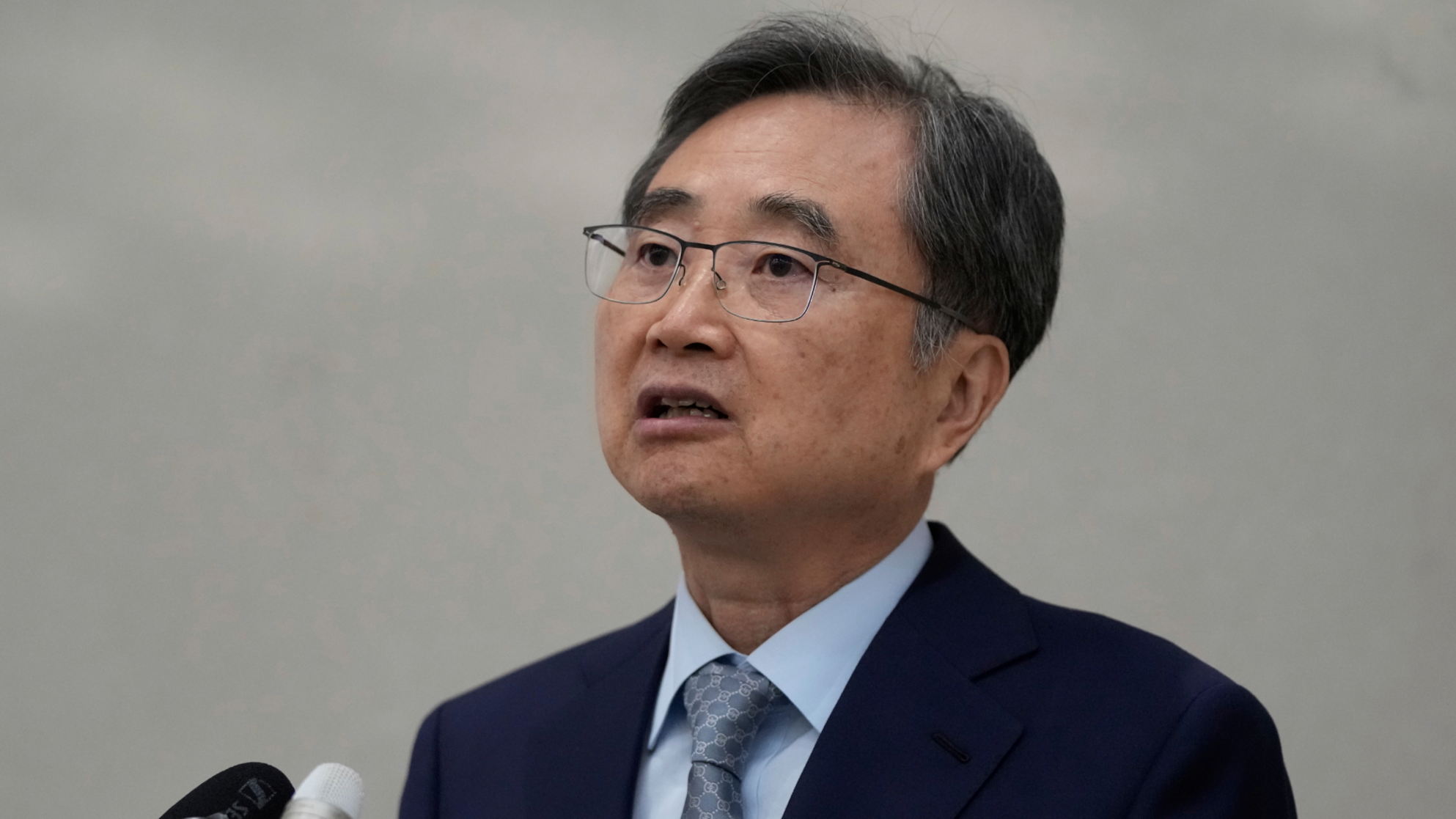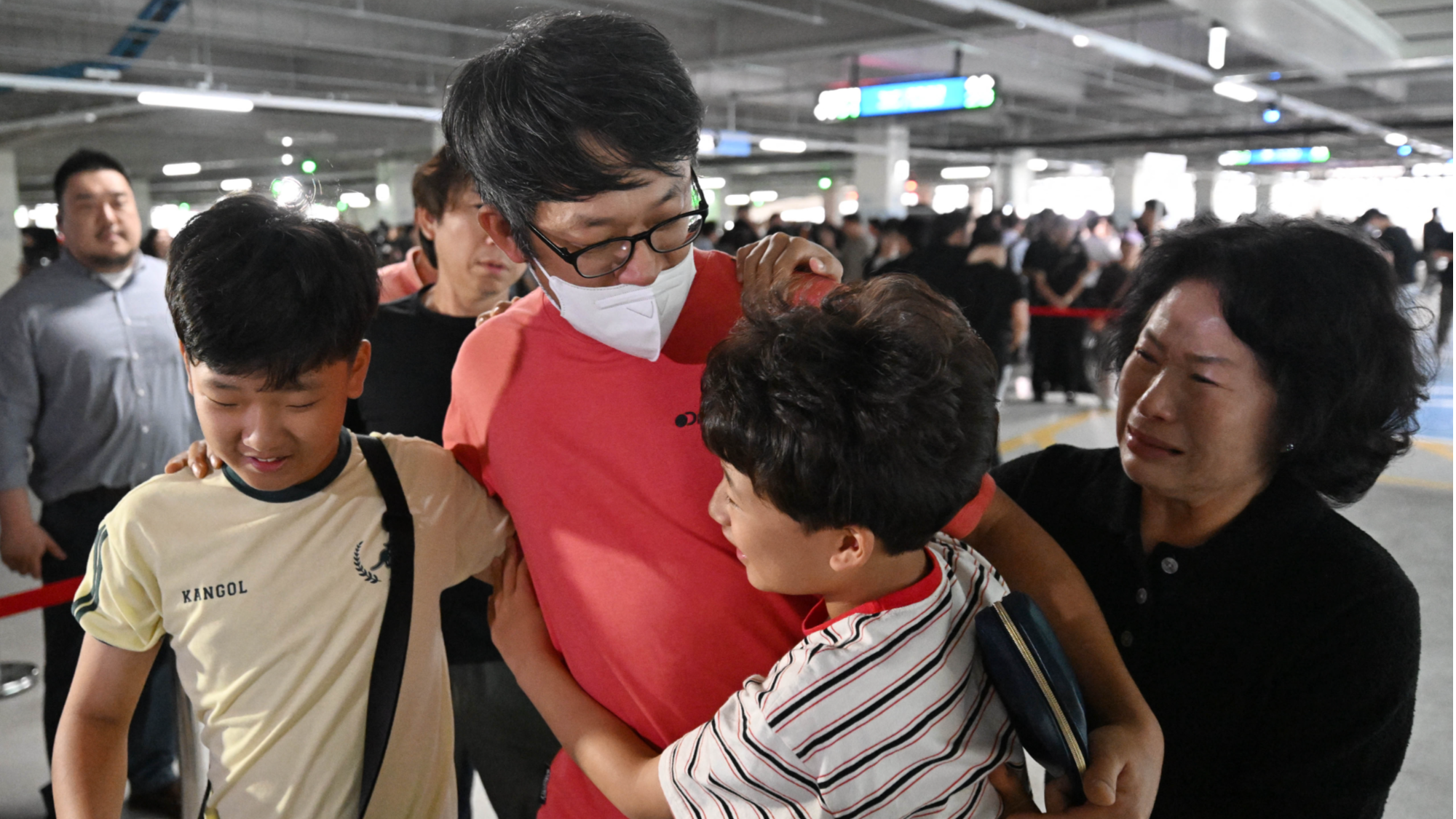
South Korea’s top diplomat issued a rare rebuke of the United States on Sept 16 over the recent detention of South Korean workers in Georgia while both sides face deadlock in trade negotiations.
“Recently, I have come to realize that the US is no longer the same country that used to cooperate well with many allies and friendly countries,” said South Korean Foreign Minister Cho Hyun during a parliamentary inquiry session at the National Assembly in Seoul, according to the Yonhap News Agency.
He made the remarks when answering a lawmaker’s question on the recent detention of South Korean workers, which caused wide shock and anger in the East Asian country.
More than 300 South Korean workers, along with 10 Chinese nationals, were detained in an unprecedented crackdown by US immigration officers at a Hyundai-LG plant in the state of Georgia on Sept 4. The incident came just weeks after South Korean President Lee Jae-myung met US President Donald Trump in Washington.
On Sept 15, South Korea’s presidential office said the government is looking into human rights violations during the US immigration raid and detention of the workers in Georgia.
ALSO READ: South Koreans seized in US immigration raid return home to rousing welcome
In response to a question regarding the lack of a joint statement on tariff negotiations after Lee’s summit with Trump in August, Cho said it was because the statement, if documented as it was at the time, could have included some worrisome content that might have a significant impact on South Korea’s economy.
Despite the two countries reaching a framework trade deal on July 30 to reduce the US import duty rate to 15 percent, negotiations have stalled.
While the US administration announced this week that it will start to impose a 15 percent tariff on Japanese automobiles based on a bilateral trade deal, tariffs on auto imports from South Korea remain at 25 percent, putting the country at significant disadvantage compared to Japan.
South Korean Trade Minister Yeo Han-koo was scheduled to be in Washington until Sept 18 to finalize the trade talks, with a key focus on resolving the differences between the two sides over a $350 billion investment package pledged by South Korea.

The US is demanding a deal similar to the one with Japan, in which the US is reported to receive direct investment from South Korea under terms set by the US and takes 90 percent of the returns. South Korea has been calling for “a win-win solution”.
Noting that Japan’s foreign exchange reserves stand at $1.3 trillion, three times that of South Korea, Kim Tae-hwang, an international trade professor at Myongji University, told China Daily that it is impossible for South Korea to invest $350 billion in cash when its current reserves are only about $410 billion.
“How much does the US invest through matching funds? Zero,” said Kim. “Taking 90 percent of the investment is economically unacceptable.”
He also stressed that support must to be provided to ensure a smooth supply and demand of human resources for South Korea’s investment and industrial cooperation with the US as the current US work visa system presents great structural challenges to South Korean professionals.
READ MORE: US immigration agents arrest hundreds at Hyundai plant, mostly Koreans
Unlike the expansion of investment in China, Hur Jung, an economics professor at Sogang University in Seoul, said in a forum on Sept 16 that expanding investment in the US is highly likely to lead to a reduction in domestic manufacturing jobs and production.
“When direct investment to China increased rapidly in 2000-10, manufacturing employment in South Korea decreased, but the proportion of manufacturing value-added actually increased,” Hur was quoted by Maeil Business Newspaper as saying.
In contrast, during the period where foreign direct investment to the US surged from 2015 to 2024, both domestic employment share and value-added contribution of manufacturing declined, Hur said.
As South Korean companies also announced plans to invest an additional $150 billion in the US, Hur said this could not only trigger a foreign exchange crisis, but also lead to the hollowing out of domestic industries.
Foreign Minister Cho began a two-day visit to Beijing on Sept 17, during which he was expected to discuss bilateral cooperation and ways to ease tensions in Northeast Asia with his Chinese counterpart.


